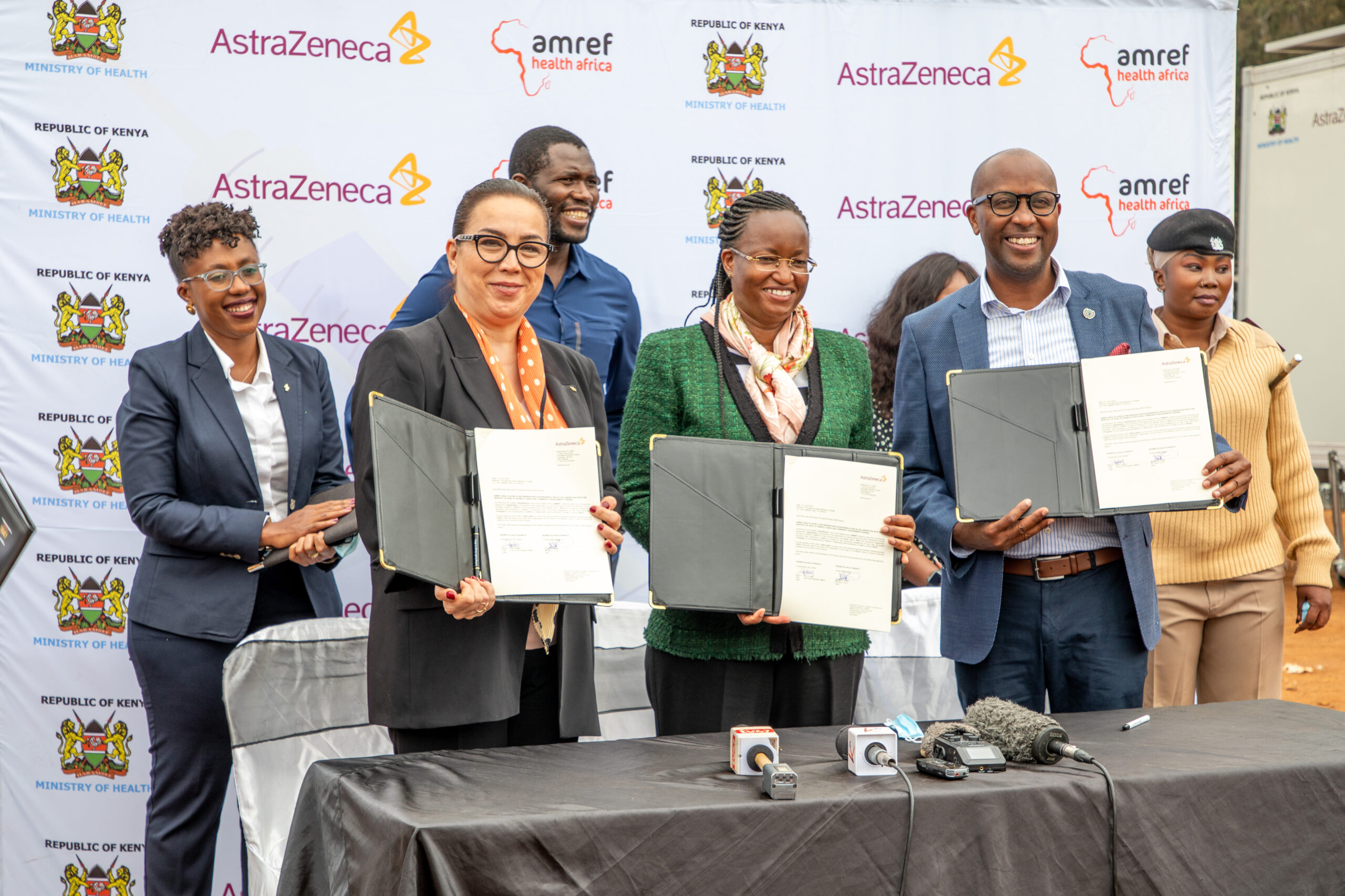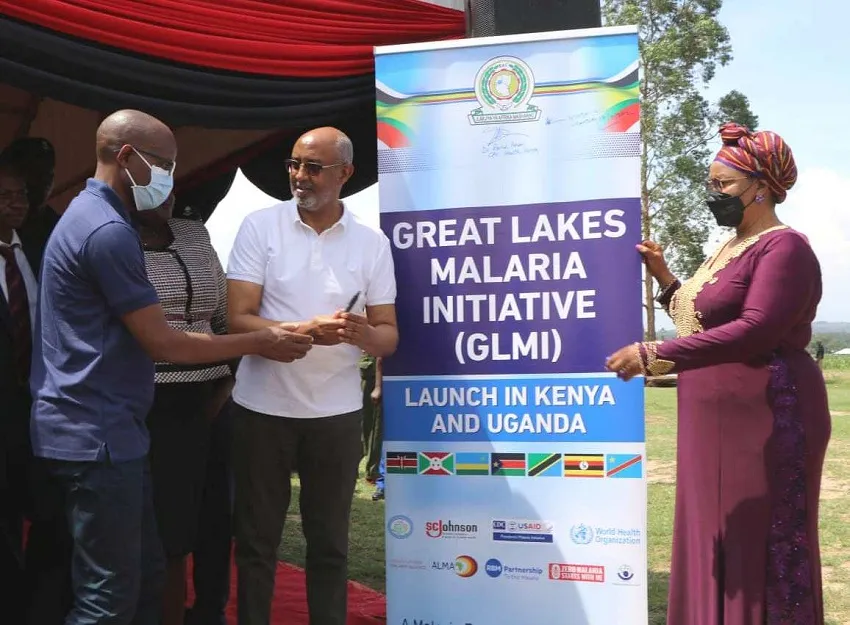Cholera outbreak reminder that healthcare is a shared responsibility
Tuesday, 19 September, 2017


The resurgence of cholera in several parts of Kenya, as signaled by the recent outbreak involving at least 95 police officers in Nairobi, has revived national discourse about the disease.
As at August 15, 2017, cholera had affected 2,210 people in 16 counties and resulted in 32 preventable deaths, according to a report by the Ministry of Health.
The report further indicates that there is still an active cholera outbreak in nine counties – Garissa, Nairobi, Kajiado, Nakuru, Kisumu, Machakos, Siaya, Homa Bay and Turkana. This high prevalence means that special emphasis needs to be placed on efforts to sensitise the public in affected areas on basic prevention measures such as hand washing, water treatment and food hygiene.
Amref Health Africa is currently engaged in efforts to create awareness at the grassroots level. Along with other key partners such as UNICEF the World Health Organization, Kenya Red Cross the Ministry of Health, we have sensitised at least 50,000 households in Nairobi on practising safe water treatment.
Although creating awareness about cholera prevention is a necessary first step in containing the spread of the disease, more still needs to be done to deal the disease a decisive blow. Cholera in Kenya in 2017 is simply unacceptable.
Integrating community health workers (CHWs) into the formal health system is essential for the prevention of cholera and other deadly diseases. Presently there is no clear framework for integrating them into the formal health work force and many go without pay, leading to high rates of attrition. CHWs are an essential part of an integrated health system, helping to stem epidemics and keep communities out of danger through preventive measures, including disease surveillance. That’s why we are partnering with Unilever East Africa to train CHWs in prevention of cholera, and the recognition of its symptoms With such training, CHWs can save lives at the communty level.
Cholera is caused by faecal contamination of food and water and is primarily linked to insufficient access to safe water and proper sanitation. The outbreak in Kenya is therefore indicative of the challenges that ordinary Kenyans face in accessing safe water and proper sanitation. The fact that some of the outbreaks originated in high-end eateries also indicates that we need stricter enforcement of public health standards and constant disease surveillance for cholera and other public health threats.
Amref Health Africa and other stakeholders in the health sector have a critical role to play in this respect. However, many factors affecting access to safe water and proper sanitation fall outside the direct control of healthcare stakeholders.
The proliferation of slums, for instance, is not something that Amref Health Africa or the Ministry of Health can directly address. Yet this is one of the key drivers of poor sanitation and hence a key contributor to high cholera prevalence.
It is estimated that 60 per cent of people in Nairobi live in slums. Because of overpopulation and poor urban planning, these areas typically lack reliable water supply and sewerage systems. This points to the need for the Government to step in through policies that advocate for proper housing and improved living conditions.
According to the UN MDG 2014 report, a well-planned city should allocate between 25 per cent and 30 per cent of land to streets to allow water and sewerage systems to be easily designed along the street’s networks. However, in Nairobi only 12 per cent of land in the city’s core and 5 per cent of land in suburbs has been allocated to streets, the report notes.
Waste management is also a huge challenge in urban areas and, increasingly, rural areas. Blocked drainages, primarily caused by littering of plastic bags, lower sanitary standards and increase outbreak of diseases such as cholera.
Commercial interests can also undermine access to safe drinking water. Water accounts for more than half of the earnings of many of the world’s poorest, according to a report by UK-based WaterAid. Checks and balances are therefore needed, especially where profiteering from a social good such as clean water is concerned.
The private sector evidently has to start thinking along the lines of sustainable development, in line with the UN-backed Sustainable Development Goals. Companies need to assess the impact of business on the environment and communities in which they operate.
The issues outlined above, as diverse as they are, all directly affect access to safe water and proper sanitation and, consequently, influence cholera prevalence. The vital lesson to draw from this is that cholera, and indeed healthcare in general, is not the sole concern of healthcare stakeholders, but a shared responsibility. Players in government and private sector also have a critical role to play.
Dr Gitahi is the Group CEO of Amref Health Africa. Twitter: @daktari1
This OP-ED was first published by the People Daily on Tuesday, September 19, 2017.
Dr Gitahi is the Group CEO of Amref Health Africa. Twitter: @daktari1








Comments
[…] as many other agencies focusing on fistula, such as the Fistula Foundation, UNFPA, EngenderHealth, AMREF, Norwegian Red Cross and many others, there are currently 52 FIGO Fellows –trainee fistula […]
[…] tan solo tenía 8 años se negó a que le practicaran la ablación y convenció a su abuelo, un anciano masái, argumentado que esta práctica también implicaba dejar de ir a la escuela. […]
[…] there is a need to provide appropriate training, supervision and remuneration for community health workers to enable them to tackle existing and emerging health challenges, such as non-communicable diseases, […]
[…] of school-going children. Katembu was also leading a delegation to take stock of progress made by Amref Health Africa’s Maternal and Child Nutrition Project, which was launched in May 2016. Katembu noted that the project has helped to improve maternal, […]
[…] Health Africa Group CEO, Dr Githinji Gitahi who is also the current co-chair of UHC2030, noted that “UHC is a human right that ensures the people’s constitutional right is obeyed, […]
[…] to change this are ongoing and a campaign was launched at the Africa Health Agenda International Conference in Nairobi last year that […]
[…] in Kenya. Nice Leng’ete, who escaped the cut when she was 8-years-old, has earned global acclaim, including a feature story in the New York Times, because of her community-led approach to ending […]
[…] ALSO READ: Leap, the mHealth platform and i-PUSH […]
[…] post Second Innovate for Life Fund Accelerator week appeared first on Amref Health […]
[…] post Amref receives Ksh 4.6 billion grant to fight TB and malaria in Kenya appeared first on Amref Health […]
[…] post Christmas in Dagoretti Child Protection and Development Centre appeared first on Amref Health […]